Sabrina Carpenter's latest single, "Please Please Please," has taken the Spotify world by storm, securing the number 2 spot on the artist and song radios of Spotify's top 50 artists.

We may receive a portion of sales if you purchase a product through a link in this article.
Sabrina Carpenter's latest single, "Please Please Please," has taken the Spotify world by storm, securing the number 2 spot on the artist and song radios of Spotify's top 50 artists.

ALL Top 50 Artists on Spotify Have Sabrina Carpenter's 'Please Please Please' at Number 2 on Their Artist or Song Radios
Sabrina Carpenter's latest single, "Please Please Please," has taken the Spotify world by storm, securing the number 2 spot on the artist and song radios of Spotify's top 50 artists.

In the last week, Sabrina Carpenter has surpassed Bad Bunny, Ed Sheeran, Travis Scott, and Kanye West on Spotify. We expect her to overtake Kendrick Lamar, Justin Bieber, and Dua Lipa by the end of the weekend on June 23rd, and Drake and Ariana Grande by next weekend—all before the release of her upcoming album "Short n' Sweet," scheduled for August 23, 2024. This surge in popularity has been driven by just two singles from the album, "Espresso" and "Please Please Please."
The rapid rise of Carpenter may interest not only fellow artists who she is steamrolling but also the entire music industry, fans and stans, and haters alike. Numerous Spotify users have taken to Twitter/X to express frustration over being inundated with Sabrina Carpenter's music. Users report that her songs frequently appear on their playlists and are often played automatically after their preferred tracks. Our investigation into this phenomenon reveals staggering results: "Please Please Please" occupies the number 2 position in 100% of the top 50 Spotify Artist playlists or their song playlists. In most cases, "Espresso" was found at number 8 on the same playlists.

The question arises: Has Sabrina Carpenter created two of the most viral tracks in history with "Espresso" and "Please Please Please," or is there another factor at play? A glance at Twitter/X reveals numerous comments on this issue. Many users complain about "Espresso" and "Please Please Please" appearing in various playlists, from Rap and 60’s playlists to Spotify’s AI DJ. "Espresso" and "PPP" seem to be everywhere, and Spotify users are unhappy. A single tweet from a user complaining about Sabrina Carpenter’s omnipresence on their playlists garnered over 300k likes and 40 million views in under 48 hours. "PPP" has reportedly been playing after unrelated songs across all genres and decades.
Some fans speculate about the use of payola, the illegal practice of paying for radio song placements without disclosure. Others suggest that Sabrina Carpenter might have leverage over Spotify’s founder, Daniel Ek. The theories and complaints are widespread. From our research, "Please Please Please" has taken the number 2 position in playlists for artists such as 21 Savage, 50 Cent, ABBA, Adele, aespa, Amy Winehouse, Angele, Arctic Monkeys, Ariana Grande, Artemas, A$AP Rocky, AUDREY NUNA, Ava Max, BABYMONSTER, Bad Bunny, Bee Gees, Benson Boone, Beyonce, Billie Eilish, Billie Holiday, Billy Joel, BINI, BLACKPINK, Britney Spears, Bruno Mars, Cardi B, Chapell Roan, Charli XCX, Christina Aguilera, Central Cee, Coldplay, Creedence Clearwater Revival, Daddy Yankee, Dasha, David Guetta, Demi Lovato, Destiny’s Child, Doja Cat, Dolly Parton, Drake, Dua Lipa, Ed Sheeran, elise rose, Elton John, Eminem, Etta James, Fart Fest, Fergie, FIFTY FIFTY, FKA twigs, FloyyMenor, Frank Sinatra, Future, Glass Animals, Gunna, Gwen Stefani, Harry Styles, Hillary Duff, Hozier, Imagine Dragons, J Balvin, Jay-Z, Jeff Buckley, JENNIE, Jennifer Lopez, Joni Mitchell, Jorja Smith, Jung Kook, Justin Bieber, Kanye West, Karol G, Katy Perry, Kehlani, Kendrick Lamar, Khalid, Kylie Minogue, Lady Gaga, Lana Del Rey, Laufey, Lauryn Hill, LE SSERAFIM, Lil Nas X, Lily Allen, Macklemore, Madison Beer, Mahmood, Marshmello, Martin Garrix, Maroon 5, Meghan Trainor, Metro Boomin, Michael Buble, Michael Jackson, Miley Cyrus, Mitski, Myles Smith, Neon Trees, NewJeans, NSYNC, Olivia Rodrigo, One Direction, OneRepublic, Paramore, Paul McCartney, Pitbull, Post Malone, Queen, Rauw Alejandro, Rihanna, Rob Grant, Royel Otis, Rvissian, Sam Smith, Saweetie, Selena Gomez, Sexyy Red, Shaboozey, Shakira, Sherine, Sia, Soulja Boy, Spice Girls, Suki Waterhouse, SZA, Tame Impala, Tate McRae, Taylor Swift, Teddy Swims, THE ANXIETY, The Chainsmokers, The Kid Laroi,The Pussycat Dolls, The Ronettes, The Strokes, The Temptations, The Weeknd, Travis Scott, Troye Sivan, Tommy Richman, Tony Bennett, Tracy Chapman, Twenty One Pilots, Victoria Monet, WILLOW.
Some of the more unusual times "PPP" showed up on our playlists were for artists like 21 Savage, 50 Cent, Eminem, ABBA, Bee Gees, Creedence Clearwater Revival, Etta James, Frank Sinatra, Queen, Sexyy Red, The Ronettes, The Strokes, The Temptations, and Tony Bennett.



After seeing a user on X/Twitter post about "PPP" playing after a fart track, we searched "Fart" on Spotify and created a Fart Radio, and "PPP" still took the 2nd position among the fart “songs.”

This is just a sampling. Numerous Spotify users on Twitter/X share similar stories. One user, for example, reported "PPP" as the number 2 track on their Eminem Artist Radio, whereas for us, "PPP" was not on our Eminem Artist Radio but on Eminem’s Houdini Radio. Results vary from account to account.
X users have shared various accounts of how "PPP" appeared in unexpected playlists and contexts. Here are some of the most notable:
- @joleena: “No matter what I’m listening to, as soon as the playlist or album ends, the 2nd 'random' song will always be a Sabrina Carpenter song…I have never actively put on [the] artist’s music. Spotify just forces me to listen to them.”
- @KarmaIsAFad: “fraudulence never stops” in response to a Pop Crave post about “PPP” spending an 8th day at #1 on Spotify.
- @shenshiro11: “Spotify keeps pushing Sabrina Carpenter on me like no I don’t want to hear the song randomly after Cleo soul.”
- @anoobIRL: “Nothing against miss sabrina carpenter but I had to block her on Spotify cause she on all my radios and it don’t make sense.”
- @dollarsuxx: “The Sabrina Carpenter autoplay on Spotify nothing like I’ve ever seen before.”
- @icaruSYRE: “@Spotify girl I don’t know who is putting Sabrina Carpenter song on every fucking playlist but I need y’all to stop.”
- @okaykaiju: “I hate Spotify I hate it so much I try to put on Tom Waits radio, and they give me 4 hours of acoustic guitar about killing yourself and one Espresso Sabrina Carpenter somehow.”
- @Bunniboo19: “@Spotify do yall want to explain why Sabrina Carpenter just randomly played when my boyfriend was listening to @SUICIDEBOYS?”
- @lashveli: “Every time I hear a Sabrina Carpenter song it is against my will also they keep fucking autoplaying on my Spotify like WHAT THE FUCK.”
- @ReptarV2: “@Spotify why the hell is it that I’m listening to Nate Dogg and then the next song is Sabrina Carpenter???? Make it make sense.”
- @shaybl: “The Sabrina Carpenter Spotify theory is true because tell me why did Please Please Please play during my 2000’s R&B playlist?”
- @rickythomaslee: “Doesn’t matter what I listen to on Spotify, as soon as the playlist ends, that fucking Sabrina Carpenter song comes on immediately after and I can’t stand it. Please, please, please make it stop @SpotifyCares!!”
- @gregweekss: “This Espresso nonsense Spotify is forcing down my throat lmaoo…How are you recommending that bullshit to me when I don’t even listen to basic pop at all. The music is fucking horrible.”
- @tree_more6: “Okay I’m subscribing to this Sabrina Carpenter Spotify conspiracy. How is she popping up on my friend's account that listens to 90% Nigerian/African gospel and 10% Afrobeats?”
- @EMP1R1C4L: “this fucking Sabrina carpenter woman kept showing in my recommended songs on Spotify, so every time I opened it it seemed like I was listening to her and I felt so embarrassed.”
- @DavidRyanDev: “Spotify is shoving Espresso by Sabrina Carpenter down my throat with the DJ beta feature.”
- @torturedpoemdep: “the Sabrina carpenter curse on Spotify is so real like I enjoy her music but the auto play of either please please please or espresso is fucking INSANEEEEEEE.”
- @jmcmorrow08: “spotify please free me from the wrath of sabrina carpenter…I’ve blocked that dumbass song six times and it still plays WITHOUT fail after every single song and I DO NOT LIKE IT PLEASE FREE ME FROM THE TERROR.”
- @jplarocque: “Spotify recommending Sabrina Carpenter on every damn playlist including shoegaze and ‘90s electronica. Was the algorithm always this obvious?”
- @TME_RT: “Please I need legal advice. How can I sue Spotify for always playing Sabrina carpenter when I don’t even have her on my fucking playlist!!”
- @dungeonsynthh: “THEN WHY IS ESPRESSO PLAYING AFTER 80s SKA SONGS, AFTER 40s FOLK SONGS, AFTER 00’s METAL ??? I don’t listen to her, and not many similar to her, so whyyyyy is espresso the default recommended song for everythinggg.”
- @Dedalwdes: “She literally automatically plays in my Greek folk music from Asia Minor playlist.”
- @animxmi: “Spotify you need to stop playing Sabrina Carpenter’s songs in unrelated genres before you potentially ruin her career by getting people to hate her.”
- @GeorgeDanso97: “@capitolmusic and @katyperry Capitol we need the payola like Sabrina carpenter. All the hype and the payola to go number one. We don’t care anymore about anything. We just need a number one.”
- @BrodyLogan: “The replies are amazing. @Spotify taking that big payola money to make every Sabrina Carpenter song a hit.”
- Another user called Sabrina Carpenter “Autoplaybrina,” which received hundreds of thousands of views and thousands of likes.

A significant issue with what Spotify is doing with Sabrina Carpenter’s promotion is that every time it serves "Espresso" or "PPP" to a user on unrelated playlists or automatically plays the songs, the limited attention and time is going to the artist that Spotify is pushing, and not the music that should organically be playing. This diverts attention away from other artists, impacting both big and small artists, especially indie artists where every listener, fan, and royalty matters to make ends meet. The consequences are significant; we estimate that Sabrina Carpenter's promotion has diverted up to $2.5 million dollars from other artists and up to 4 billion listener minutes so far, and we expect these numbers to grow significantly.
Spotify recently updated their policy to state that tracks must have reached at least 1,000 streams in the previous 12 months to generate recorded royalties. If artists don't reach 1,000 streams on their tracks within 12 months from a diverse pool of listeners, Spotify will not pay royalties and will not count those streams after 12 months. Taking attention away from users by pushing their artists of choice means that many thousands of artists will not reach their royalty thresholds to be paid. This translates to less discovery, revenue, fans, merch sales, concert sales, album sales, etc., for other artists. It’s a zero-sum game because listeners have limited time.
In the last month, Sabrina Carpenter went from 58 million monthly listeners to 74 million, a staggering increase of 16 million. She has recently been gaining up to 1.3 million new listeners per day. Additionally, her listener-to-follower conversion rate on Spotify is 12.7%, whereas the average for the top 20 artists on Spotify is 72.5%. As of this writing, Sabrina Carpenter is the 14th biggest artist on Spotify. We expect her to finish the weekend as the 10th biggest, overtaking Kendrick Lamar, Justin Bieber, and Dua Lipa in short order, and reach the number 7 spot by next weekend, surpassing Drake and Ariana Grande—all before her album release. As Spotify keeps pushing Ms. Carpenter and she continues to overtake other artists, it is sure to upset the fans of these artists, and perhaps the artists themselves, who are losing both position and revenue from their own playlists to Spotify's favorite artists of choice.
Given the significant impact on other artists and the user experience, Spotify has some serious explaining to do. The company needs to address the concerns of artists whose radio playlists are not just being overshadowed but are losing top positions to Carpenter's songs. This translates to lost revenue and listeners for these artists, which could severely impact their careers. Spotify may need to consider compensating for the lost revenue. Fans and Spotify users, too, deserve transparency and a fair listening experience. The current situation may even call for intervention by a regulatory body to ensure proper oversight and fair practices in music streaming. If Spotify continues the aggressive promotion, the potential for backlash grows, not only from users but also from the wider music industry. The need for a more transparent and fair approach to music promotion is clear, ensuring that all artists have a fair chance to reach their audience. If these practices persist, they could fundamentally alter the landscape of the music industry, prioritizing algorithmic manipulation over genuine artistic discovery and fan engagement.



Heroes & Villains earns RIAA 2x Platinum for Metro Boomin, recognizing 2,000,000 units on December 1, 2025.
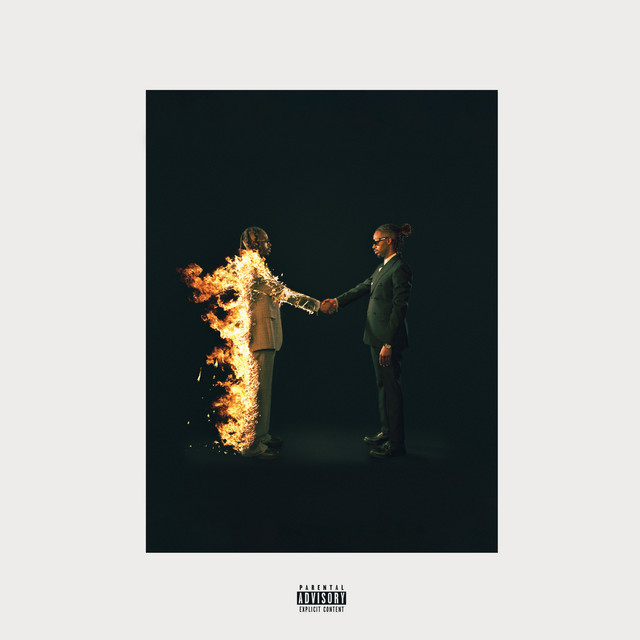
We may receive a portion of sales if you purchase a product through a link in this article.
Heroes & Villains earns RIAA 2x Platinum for Metro Boomin, recognizing 2,000,000 units on December 1, 2025.

Heroes & Villains earns RIAA 2x Platinum for Metro Boomin, recognizing 2,000,000 units on December 1, 2025.

Metro Boomin's acclaimed sophomore album, Heroes & Villains, has officially been certified 2x Platinum by the Recording Industry Association of America (RIAA). The certification, dated December 1, 2025, recognizes 2,000,000 units in the United States. Released on December 2, 2022, via Boominati Worldwide and Republic Records, the album continued the producer's streak of chart-topping success.
Upon its release, Heroes & Villains became Metro Boomin's third project to debut at No. 1 on the Billboard 200 chart. The album spawned a quartet of Top 40 entries, led by the chart-topping platinum-selling single "Creepin'," a collaboration with The Weeknd and 21 Savage that notably interpolated Mario Winans' 2004 hit "I Don't Wanna Know." Other standout tracks that amassed massive streaming numbers include "Too Many Nights" (featuring Don Toliver and Future), "Trance" (with Travis Scott and Young Thug), and "Superhero (Heroes & Villains)" (with Future and Chris Brown). The project's critical and commercial success was further recognized with a nomination for Best Rap Album at the 66th Annual Grammy Awards.
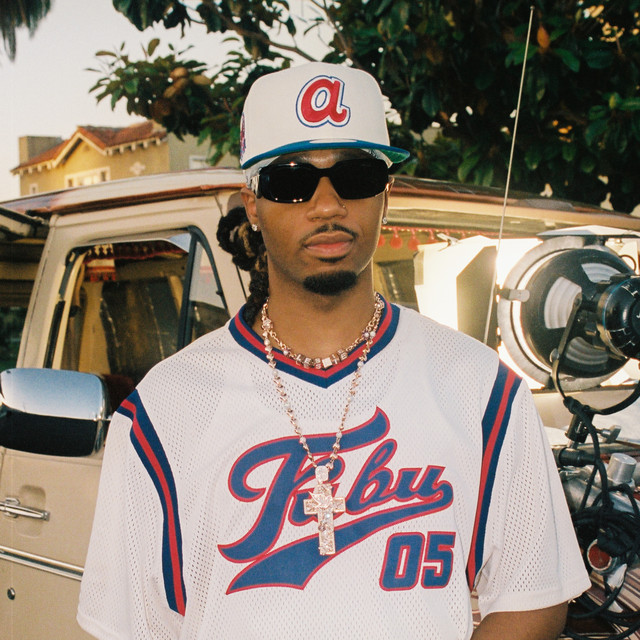
A St. Louis native who became a central figure in Atlanta's trap scene, Metro Boomin (born Leland Wayne) has been a dominant force in modern hip-hop for over a decade. He rose to prominence crafting a signature "jet-black and low-gloss" sound for artists like Future, Migos, and Drake, producing a string of multi-platinum hits including "Bad and Boujee" and "Congratulations." His own projects have consistently achieved No. 1 status, from his 2018 solo debut Not All Heroes Wear Capes to collaborative albums like Savage Mode II with 21 Savage and 2024's WE DON'T TRUST YOU with Future. His work on the Spider-Man: Across the Spider-Verse soundtrack also topped the charts, and his influence was further cemented by a Grammy nomination for Producer of the Year, Non-Classical.
Raindrops (Insane) earns RIAA Platinum for Metro Boomin & Travis Scott, recognizing 1,000,000 units on December 1, 2025.
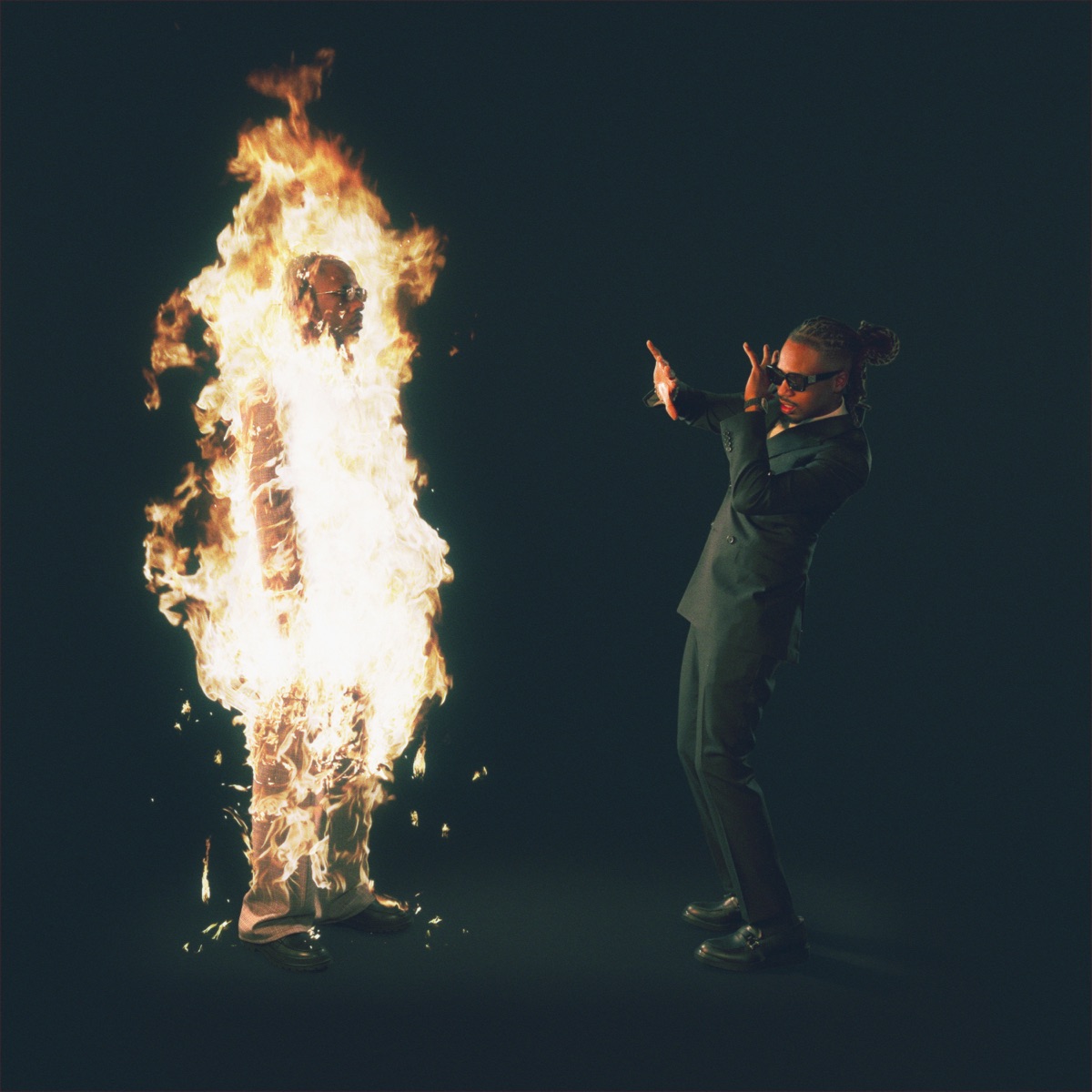
We may receive a portion of sales if you purchase a product through a link in this article.
Raindrops (Insane) earns RIAA Platinum for Metro Boomin & Travis Scott, recognizing 1,000,000 units on December 1, 2025.

Raindrops (Insane) earns RIAA Platinum for Metro Boomin & Travis Scott, recognizing 1,000,000 units on December 1, 2025.

The collaborative single "Raindrops (Insane)" by producer Metro Boomin and rapper Travis Scott has been certified Platinum by the Recording Industry Association of America (RIAA). The certification, dated December 1, 2025, signifies 1,000,000 certified units in the United States. Released on December 2, 2022, the track is featured on Metro Boomin's critically acclaimed sophomore album, HEROES & VILLAINS, released via Boominati Worldwide and Republic Records.
"Raindrops (Insane)" serves as a thematic counterpoint on HEROES & VILLAINS, contrasting the album's broader heroic concepts with a darker, more introspective mood. The song features Travis Scott detailing the emotional volatility of a fast-paced lifestyle, with lyrics that allude to substance use as a coping mechanism. The track, which has an alternative title of "Insane," also exists in a slightly different form on physical versions of the album, with altered lyrics and vocal mixing. The parent album, HEROES & VILLAINS, was a commercial success, topping the Billboard 200 and later earning a Grammy nomination for Best Rap Album.

Leland "Metro Boomin" Wayne is a St. Louis-raised, Atlanta-based producer widely regarded as one of the key architects of the modern trap sound. After gaining prominence in the early 2010s, he produced a string of hits for artists like Future, Migos, and 21 Savage, including the chart-topping "Bad and Boujee." His own projects have consistently achieved commercial success; his debut solo album, Not All Heroes Wear Capes (2018), and collaborative albums such as Savage Mode II (2020) with 21 Savage and WE DON'T TRUST YOU (2024) with Future have all debuted at No. 1 on the Billboard 200. His work on HEROES & VILLAINS also contributed to his nomination for Producer of the Year, Non-Classical at the 66th Annual Grammy Awards.
Moment Of Truth earns RIAA Gold for The Red Clay Strays, recognizing 500,000 units on December 1, 2025.

We may receive a portion of sales if you purchase a product through a link in this article.
Moment Of Truth earns RIAA Gold for The Red Clay Strays, recognizing 500,000 units on December 1, 2025.

Moment Of Truth earns RIAA Gold for The Red Clay Strays, recognizing 500,000 units on December 1, 2025.

The Red Clay Strays' 2022 album, Moment Of Truth, has been certified Gold by the Recording Industry Association of America (RIAA). The certification, dated December 1, 2025, recognizes 500,000 units in the United States. Released on April 29, 2022, via The Red Clay Strays / Thirty Tigers, the album marks a significant milestone for the fast-rising country and Americana group.
Hailing from Mobile, Alabama, The Red Clay Strays are Brandon Coleman (lead vocals, guitar), Drew Nix (electric guitar, vocals, harmonica), Zach Rishel (electric guitar), Andrew Bishop (bass), and John Hall (drums). The band has cultivated a reputation for its "electric live shows" and has experienced a rapid ascent, underscored by selling out a three-night headline debut at Nashville's historic Ryman Auditorium within hours. Their eclectic sound blends country, southern rock, and Americana, which has helped them build a substantial audience, including over 1.1 million followers on Spotify and more than 2.2 million on Instagram.
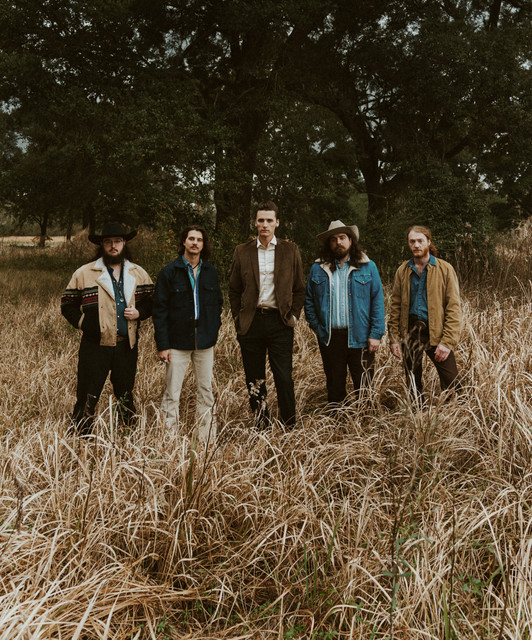
The success of Moment Of Truth was significantly driven by the breakout single "Wondering Why." The track has garnered over 75 million streams, spent a week at No. 1 on Spotify's Viral 50 USA Playlist, and held the top spot on the Americana Singles chart for six consecutive weeks. Its crossover appeal was evident as it also charted on the all-genre Billboard Hot 100, as well as Billboard's Hot Rock Songs, AAA, and Hot Country Songs charts. The album itself reached No. 2 on the Americana Albums Chart, with Billboard praising its sound: "Lead singer Coleman's gruff, impassioned vocal shines here as always, bolstered by the group's exemplary musicianship."
Creepin' earns RIAA 4x Platinum for Metro Boomin, The Weeknd, & 21 Savage, recognizing 4,000,000 units on December 1, 2025.

We may receive a portion of sales if you purchase a product through a link in this article.
Creepin' earns RIAA 4x Platinum for Metro Boomin, The Weeknd, & 21 Savage, recognizing 4,000,000 units on December 1, 2025.

Creepin' earns RIAA 4x Platinum for Metro Boomin, The Weeknd, & 21 Savage, recognizing 4,000,000 units on December 1, 2025.

The collaborative single "Creepin'" by producer Metro Boomin with The Weeknd and 21 Savage has been certified 4x Platinum by the Recording Industry Association of America (RIAA). The certification, dated December 1, 2025, recognizes 4,000,000 certified units in the United States. The track was released on December 2, 2022, through Boominati Worldwide and Republic Records as a lead single from Metro Boomin's sophomore album.
"Creepin'" is a standout track from Metro Boomin's Grammy-nominated 2022 album, HEROES & VILLAINS. The song, which features a melancholy sound, explores themes of vulnerability and infidelity in relationships. It notably interpolates the melody and chorus of Mario Winans' 2004 hit "I Don't Wanna Know." Upon its release, "Creepin'" became a chart-topping commercial success, continuing a long streak of hit records for all three artists involved.

Leland "Metro Boomin" Wayne is a St. Louis-raised, Atlanta-based producer widely regarded as one of the most influential figures in modern hip-hop. He began producing in his early teens, eventually dropping out of Morehouse College to pursue music full-time. His signature dark, street-oriented sound has been behind numerous multi-platinum hits, including Migos' "Bad and Boujee" and Post Malone's "Congratulations." His own projects have consistently topped the Billboard 200 chart, including his solo debut Not All Heroes Wear Capes (2018), Savage Mode II (2020) with 21 Savage, HEROES & VILLAINS (2022), and two collaborative albums with Future in 2024, WE DON'T TRUST YOU and WE STILL DON'T TRUST YOU.
The Cut That Always Bleeds earns RIAA Platinum for Conan Gray, recognizing 1,000,000 units on December 1, 2025.
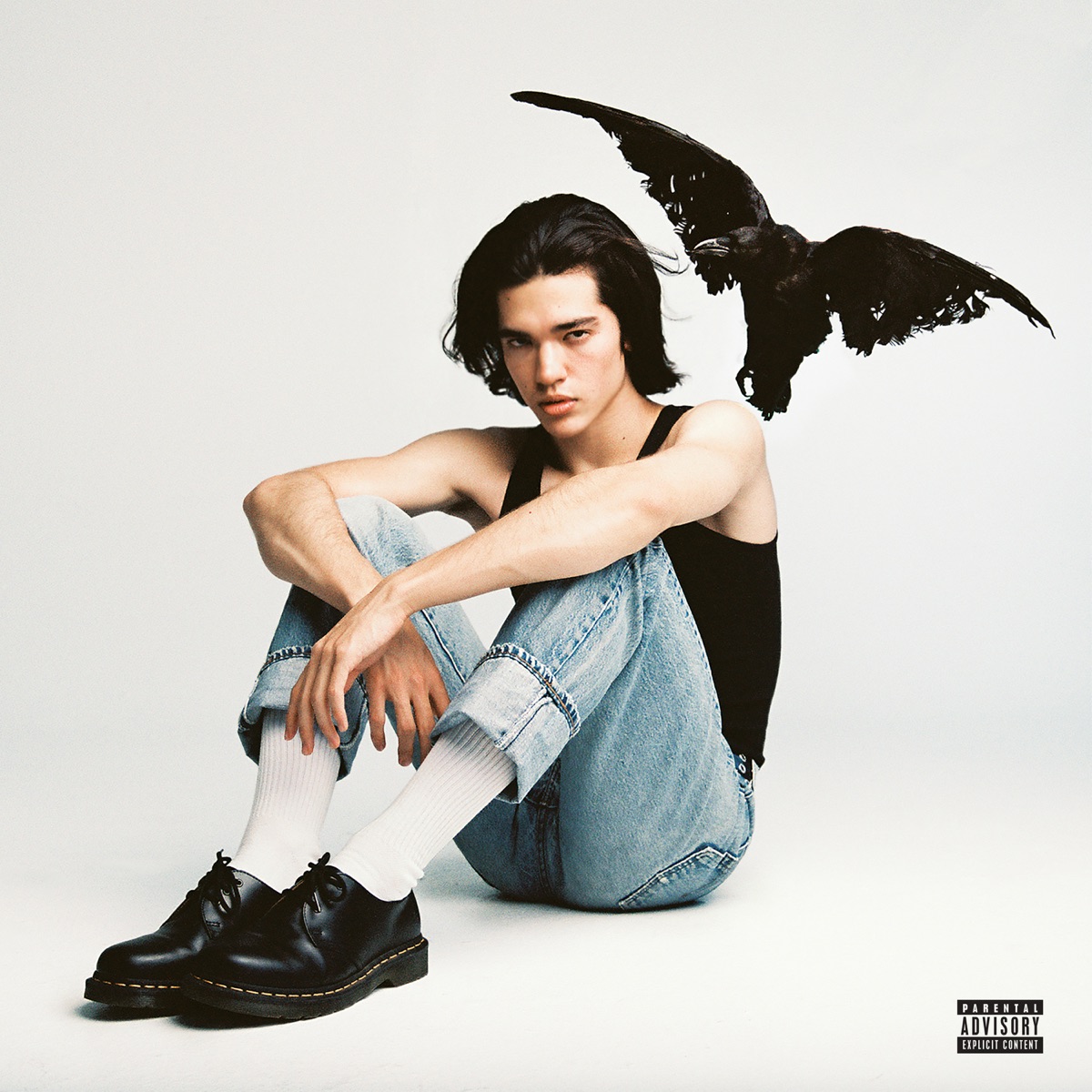
We may receive a portion of sales if you purchase a product through a link in this article.
The Cut That Always Bleeds earns RIAA Platinum for Conan Gray, recognizing 1,000,000 units on December 1, 2025.

The Cut That Always Bleeds earns RIAA Platinum for Conan Gray, recognizing 1,000,000 units on December 1, 2025.

Conan Gray's song "The Cut That Always Bleeds" was certified Platinum by the Recording Industry Association of America (RIAA) on December 1, 2025. The certification recognizes 1,000,000 certified units in the United States. The track was released on March 20, 2020, via Republic Records as part of Gray's commercially successful debut studio album, Kid Krow.
"The Cut That Always Bleeds" is the sixth track on Kid Krow. The song is noted for its simple instrumentation, which consists mostly of guitar, and its powerful vocal delivery. According to annotations on Genius, Gray wrote the song about the difficulty of moving on from a relationship in which the other person repeatedly reopens emotional wounds. The track has resonated with a wide audience, accumulating over 511 million streams on Spotify and more than 306,000 pageviews on Genius.

This certification marks another milestone for the Texas-native singer-songwriter who has become a prominent voice for Gen Z with his brand of indie pop. His debut album, Kid Krow, peaked at No. 5 on the Billboard 200 and also achieved Platinum status. The album was propelled by the 4x-Platinum hit "Heather," a song written solely by Conan Gray that has surpassed 2 billion streams. With a career total of over 12 billion streams, Gray has continued his success with subsequent albums Superache (2022) and Found Heaven (2024) and embarked on a headlining arena tour in 2024 that included sold-out shows at Madison Square Garden and Wembley Arena.
Heather earns RIAA 5x Platinum for Conan Gray, recognizing 5,000,000 units on December 1, 2025.

We may receive a portion of sales if you purchase a product through a link in this article.
Heather earns RIAA 5x Platinum for Conan Gray, recognizing 5,000,000 units on December 1, 2025.

Heather earns RIAA 5x Platinum for Conan Gray, recognizing 5,000,000 units on December 1, 2025.

Conan Gray's single "Heather" has been certified 5x Platinum by the Recording Industry Association of America (RIAA), as announced on December 1, 2025. The certification from Republic Records signifies 5,000,000 certified units sold in the United States.
Released on March 20, 2020, "Heather" is the tenth track from Gray's debut studio album, Kid Krow. Gray has described the song as being about unrequited love. The track, which was written solely by Gray, became a signature hit for the artist and is one of a small number of songs with over 2 billion streams to be penned by a single writer. The success of "Heather" helped propel Kid Krow to a No. 5 debut on the Billboard 200 and an eventual Platinum certification for the album.

A Texas native, Conan Gray has become a prominent singer-songwriter for Gen Z, recognized for his hands-on creative approach, which includes writing his own music and designing his art. Since the release of Kid Krow, he has released the albums Superache (2022) and Found Heaven (2024), accumulating over 12 billion total streams in his career. In 2024, Gray embarked on a headlining arena tour, selling out venues including Madison Square Garden and Wembley Arena. His fourth studio album, Wishbone, was released in 2025.
Back In Blood (Feat. Lil Durk) earns RIAA 8x Platinum for Pooh Shiesty, recognizing 8,000,000 units on November 30, 2025.
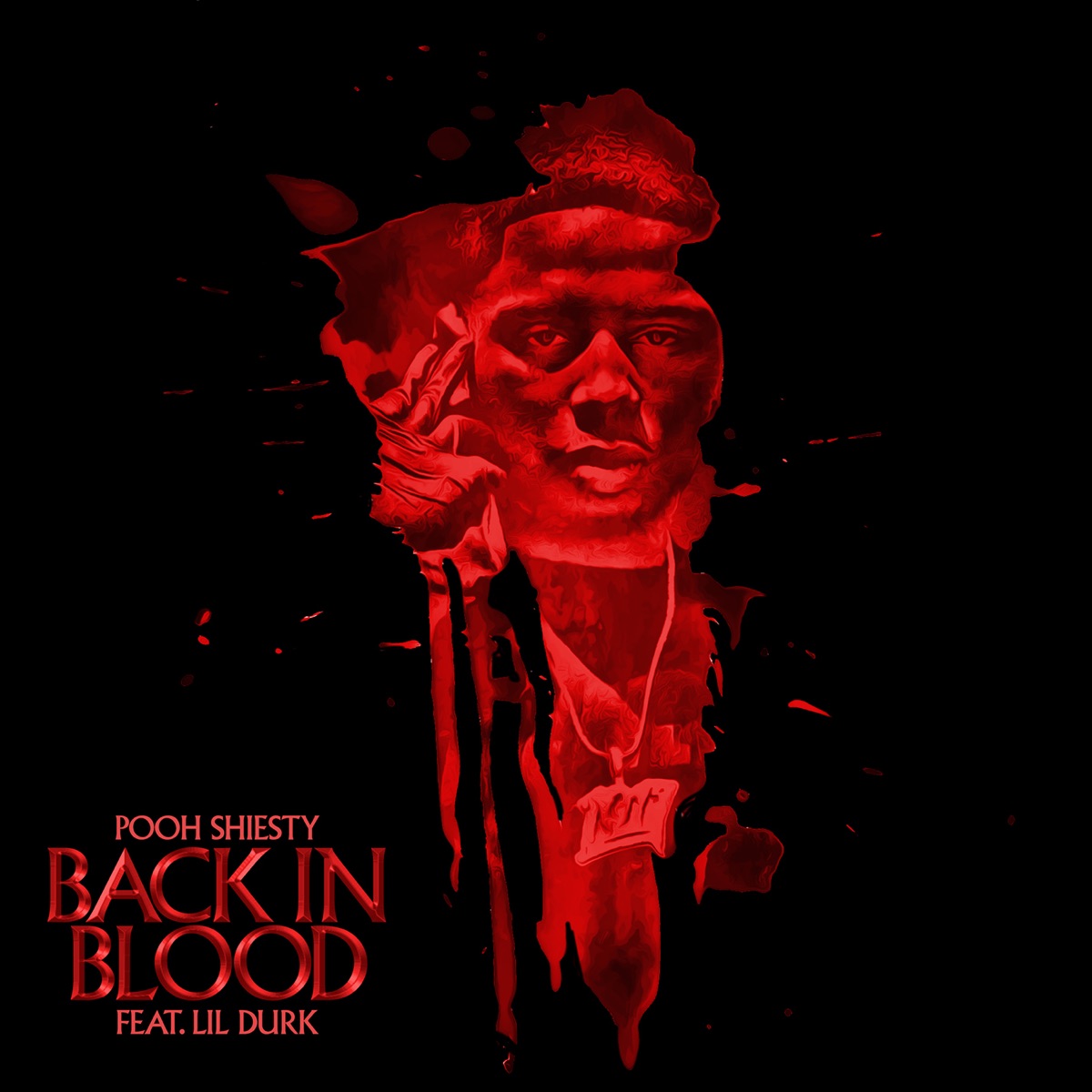
We may receive a portion of sales if you purchase a product through a link in this article.
Back In Blood (Feat. Lil Durk) earns RIAA 8x Platinum for Pooh Shiesty, recognizing 8,000,000 units on November 30, 2025.

Back In Blood (Feat. Lil Durk) earns RIAA 8x Platinum for Pooh Shiesty, recognizing 8,000,000 units on November 30, 2025.

Memphis rapper Pooh Shiesty's hit single "Back In Blood (Feat. Lil Durk)" has achieved a significant new milestone, earning an 8x Platinum certification from the Recording Industry Association of America (RIAA). The certification, dated November 30, 2025, recognizes 8,000,000 equivalent units sold in the United States. Released on November 5, 2020, via 1017 Global and Atlantic Records, the track was a pivotal release that solidified Pooh Shiesty's position as a rising star in the hip-hop scene and served as a lead single for his debut commercial mixtape.
Born Lontrell Williams, Pooh Shiesty grew up in a musical household in Memphis, with his father being a rapper and label founder. He began rapping in high school and gained significant independent traction with his 2019 track "Shiesty Summer," which garnered millions of streams and views. This success caught the attention of Southern rap icon Gucci Mane, who signed Shiesty to his 1017 label imprint in 2020. Shiesty's debut full-length project, Shiesty Season, was released in February 2021 and proved to be a commercial success, peaking at number three on the Billboard 200 chart. A deluxe version, Shiesty Season: Certified, followed in April 2022.
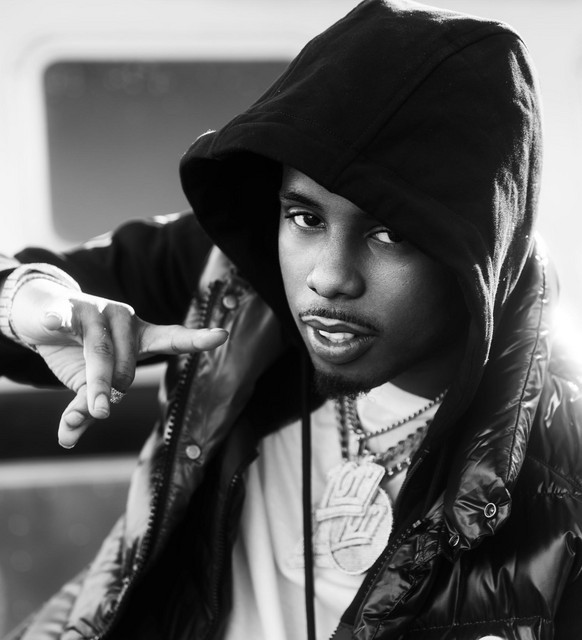
"Back In Blood" was instrumental in the success of Shiesty Season, pairing Shiesty's menacing delivery with a popular feature from Chicago drill artist Lil Durk. The song became a viral hit and remains one of the artist's most popular tracks, with over 469 million streams on Spotify alone. Pooh Shiesty maintains a strong digital presence, with over 2.1 million Spotify followers, 1.87 million YouTube subscribers, and more than 1.6 billion total views on his YouTube channel, underscoring the widespread impact of his work.
Gone Mia earns RIAA Gold for Pooh Shiesty, recognizing 500,000 units on November 30, 2025.
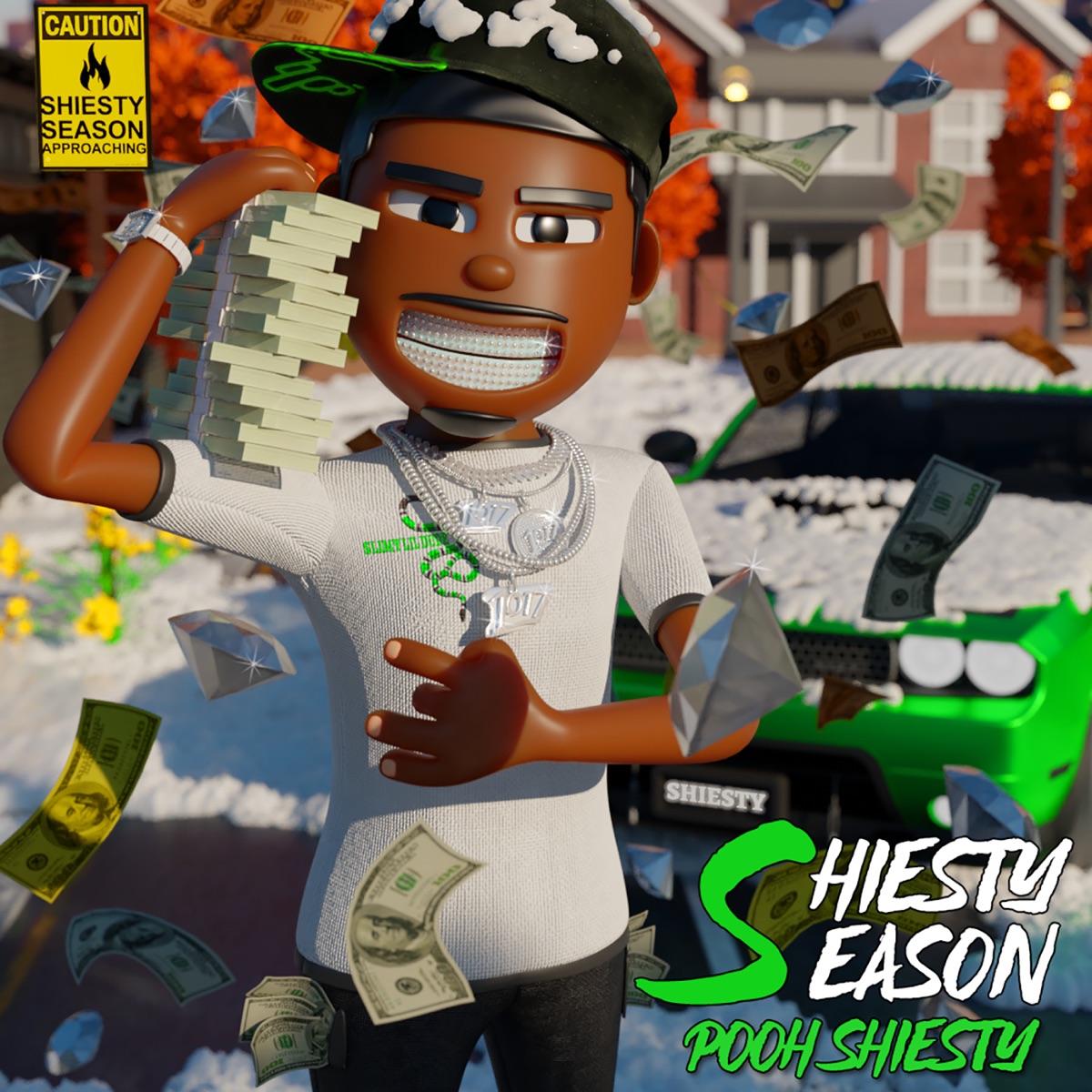
We may receive a portion of sales if you purchase a product through a link in this article.
Gone Mia earns RIAA Gold for Pooh Shiesty, recognizing 500,000 units on November 30, 2025.

Gone Mia earns RIAA Gold for Pooh Shiesty, recognizing 500,000 units on November 30, 2025.

Memphis rapper Pooh Shiesty's track "Gone Mia" has been certified Gold by the Recording Industry Association of America (RIAA), the organization announced on November 30, 2025. The certification marks 500,000 certified units in the United States. The song was released on February 5, 2021, via 1017 Global and Atlantic Records as part of the artist's debut full-length project, Shiesty Season.
Born Lontrell Williams in Memphis, Pooh Shiesty was raised in a musical household; his father was a rapper and founded his own label. Shiesty began rapping in high school, forming the Choppa Gang, and his first tracks appeared online in 2018. His 2019 single "Shiesty Summer" gained significant independent traction, leading to a record deal in 2020 with Gucci Mane's 1017 label. He quickly rose to prominence with features on the label compilation Gucci Mane Presents: So Icy Summer and a series of successful singles, including the multi-platinum hit "Back in Blood" featuring Lil Durk.

"Gone Mia" was produced by TP808 and Nick Seeley and appears as the 12th track on Shiesty Season. The album was a major commercial success, peaking at number three on the Billboard 200 chart and featuring collaborations with artists like 21 Savage, Foogiano, and Gucci Mane. A deluxe version of the project, titled Shiesty Season: Certified, was released in April 2022, adding ten new tracks. The Gold status of "Gone Mia" highlights the continued success and deep-cut appeal of Shiesty's breakout album.
50 Shots earns RIAA Gold for Pooh Shiesty, recognizing 500,000 units on November 30, 2025.
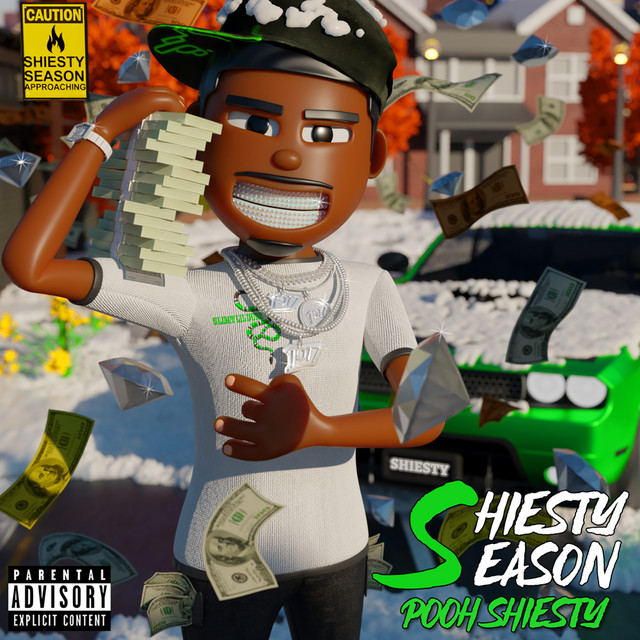
We may receive a portion of sales if you purchase a product through a link in this article.
50 Shots earns RIAA Gold for Pooh Shiesty, recognizing 500,000 units on November 30, 2025.

50 Shots earns RIAA Gold for Pooh Shiesty, recognizing 500,000 units on November 30, 2025.

Pooh Shiesty's track "50 Shots" was certified Gold by the Recording Industry Association of America (RIAA) on November 30, 2025, recognizing 500,000 certified units in the United States. Released on February 5, 2021, "50 Shots" is featured on the rapper's debut studio album, Shiesty Season, issued by 1017 Global and Atlantic Records.
Born Lontrell Williams in Memphis, Tennessee, Pooh Shiesty grew up in a musical household, as his father was a rapper and label founder. He began rapping in high school and gained significant independent traction with his 2019 track "Shiesty Summer," which accumulated millions of streams and video views. This success caught the attention of Southern rap figurehead Gucci Mane, who signed Shiesty to his 1017 label imprint in 2020. Shiesty was subsequently featured on the label's compilation Gucci Mane Presents: So Icy Summer and released a series of successful singles, including the multi-platinum hit "Back in Blood" featuring Lil Durk.

The album Shiesty Season marked a major commercial breakthrough for Pooh Shiesty, peaking at number three on the Billboard 200 and number two on the Top R&B/Hip-Hop Albums chart. The project included collaborations with artists such as 21 Savage, Foogiano, and Gucci Mane. A deluxe version of the album, titled Shiesty Season: Certified, was released in April 2022, adding ten new tracks to the original release.
Switch It Up (Feat. G Herbo & No More Heroes) earns RIAA Platinum for Pooh Shiesty, recognizing 1,000,000 units on November 30, 2025.
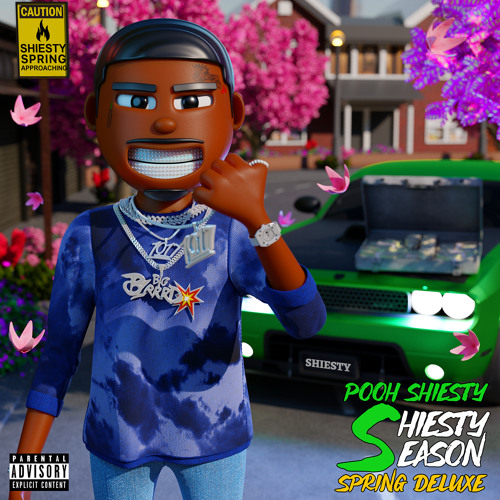
We may receive a portion of sales if you purchase a product through a link in this article.
Switch It Up (Feat. G Herbo & No More Heroes) earns RIAA Platinum for Pooh Shiesty, recognizing 1,000,000 units on November 30, 2025.

Switch It Up (Feat. G Herbo & No More Heroes) earns RIAA Platinum for Pooh Shiesty, recognizing 1,000,000 units on November 30, 2025.

Pooh Shiesty's track "Switch It Up (Feat. G Herbo & No More Heroes)" has officially been certified Platinum by the Recording Industry Association of America (RIAA), the organization announced on November 30, 2025. The certification recognizes 1,000,000 certified units in the United States. Released under 1017 Global / Atlantic Records, the song is a key track from the Memphis rapper's successful deluxe project, "Shiesty Season - Spring Deluxe," which was released on May 21, 2021. Shiesty first teased the song with a Triller video posted to his Instagram on January 30, 2021, building anticipation for his debut album cycle.
Born Lontrell Williams in Memphis, Tennessee, Pooh Shiesty grew up in a musical environment, as his father was a rapper and label founder. He began releasing music under his own name in 2018 and gained significant traction with his 2019 single "Shiesty Summer." His rising profile caught the attention of Southern rap mogul Gucci Mane, who signed him to his 1017 label in 2020. Shiesty quickly became a prominent voice on the label, appearing on the compilation "Gucci Mane Presents: So Icy Summer" and releasing a string of successful singles, including the multi-platinum hit "Back in Blood" with Lil Durk. His debut full-length project, "Shiesty Season," was released in February 2021 and peaked at number three on the Billboard 200 chart.

The Platinum status of "Switch It Up" reflects Pooh Shiesty's established position as a mainstream artist. His widespread appeal is evident in his digital footprint, which includes over 2.1 million followers on Spotify, 1.87 million YouTube subscribers, and more than 3.5 million followers on Instagram. His catalog has generated massive engagement, with his YouTube channel accumulating over 1.6 billion total views and his music earning over 503 million lifetime streams on Pandora alone. The success of "Switch It Up," which features fellow rappers G Herbo and No More Heroes, further cements the impact of his "Shiesty Season" era.
No Son Doritos earns RIAA 10x Latin Platinum for Clave Especial & Luis R Conriquez, recognizing 600,000 units on November 26, 2025.
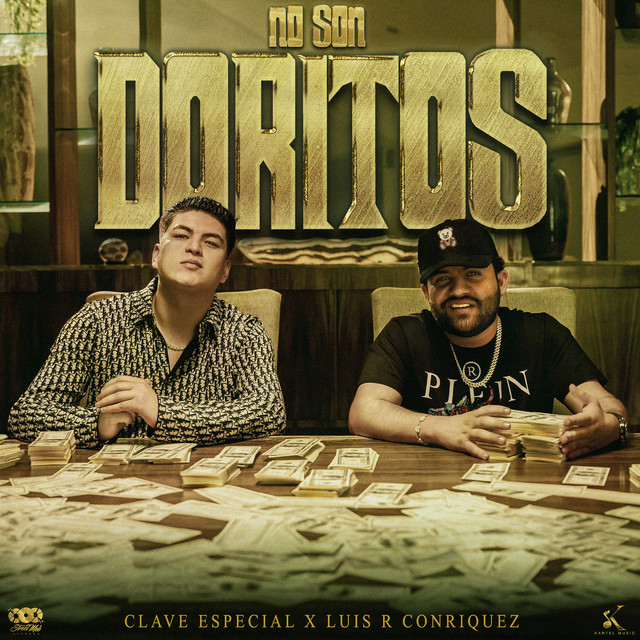
We may receive a portion of sales if you purchase a product through a link in this article.
No Son Doritos earns RIAA 10x Latin Platinum for Clave Especial & Luis R Conriquez, recognizing 600,000 units on November 26, 2025.

No Son Doritos earns RIAA 10x Latin Platinum for Clave Especial & Luis R Conriquez, recognizing 600,000 units on November 26, 2025.

The collaborative single "No Son Doritos" by Clave Especial and Luis R Conriquez has achieved 10x Multi-Platinum (Latin) status, the Recording Industry Association of America (RIAA) announced on November 26, 2025. The certification signifies 600,000 certified units in the United States. Released on August 23, 2024, via Street Mob Records, the track reached this milestone alongside another certification on the same day.
Previously certified: Diamante (November 26, 2025).
Clave Especial, a musical group from Salinas, California, has become a significant force within the música mexicana landscape, specializing in genres like corridos tumbados and corridos bélicos. The group has cultivated a substantial online following, boasting over 12.7 million monthly listeners and more than 1.2 million followers on Spotify. Their collaboration on "No Son Doritos" with established corrido artist Luis R Conriquez proved highly successful, amassing over 212 million streams on Spotify alone and becoming one of their most popular tracks.
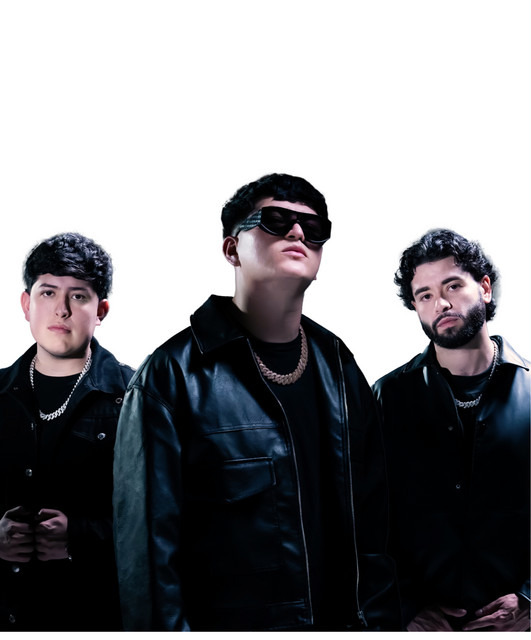
The certification underscores Clave Especial's rising prominence, which is further evidenced by their digital metrics. The group, categorized by Chartmetric as having a "superstar" career stage, commands a large audience with major listener bases in Mexico City, Guadalajara, and Monterrey. Their reach extends across platforms, with over 433 million total views on YouTube and more than 1.3 million video posts on TikTok using their music. This achievement for "No Son Doritos" adds to a catalog of successful singles, including "COMO CAPO" and "TU TU TU," cementing their position in the contemporary Latin music scene.
Long Live A$Ap earns RIAA Platinum for A$AP Rocky, recognizing 1,000,000 units on November 26, 2025.

We may receive a portion of sales if you purchase a product through a link in this article.
Long Live A$Ap earns RIAA Platinum for A$AP Rocky, recognizing 1,000,000 units on November 26, 2025.

Long Live A$Ap earns RIAA Platinum for A$AP Rocky, recognizing 1,000,000 units on November 26, 2025.

A$AP Rocky's single "Long Live A$AP" has been certified Platinum by the Recording Industry Association of America (RIAA), as of November 26, 2025. The certification signifies 1,000,000 certified units in the United States. The track was released under the A$AP Worldwide / Polo Grounds Music / RCA Records labels.
"Long Live A$AP" is the title track from the Harlem rapper's major-label debut studio album, LONG.LIVE.A$AP, which was released on January 15, 2013. The album was a commercial success, debuting at No. 1 on the Billboard 200 chart and establishing Rocky as a formidable force in the music industry. The project also featured the multi-platinum, Grammy-nominated hit "Fuckin' Problems" and the Skrillex-assisted single "Wild for the Night," further cementing its impact. Rocky also directed the music video for the title track.
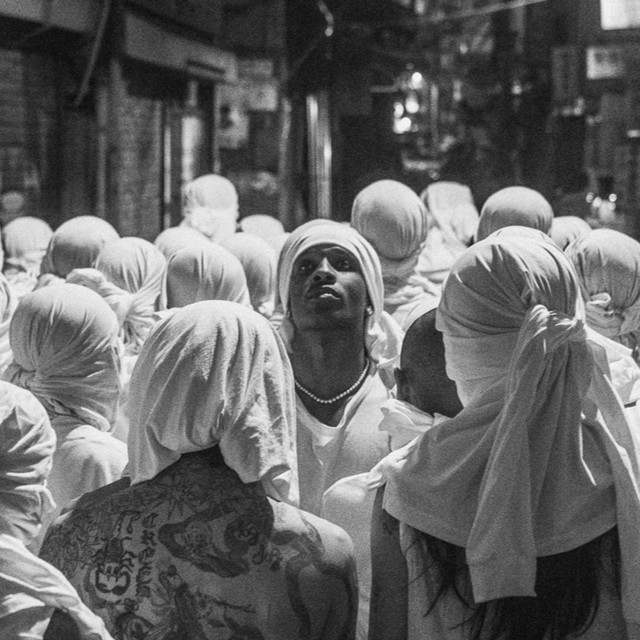
Born Rakim Athelaston Mayers, A$AP Rocky rose to prominence from Harlem, New York, becoming one of the most influential artists of the 2010s. He first captured mainstream attention with his 2011 mixtape Live. Love. A$AP, which led to a significant record deal with RCA. His career includes two consecutive No. 1 albums, with At. Long. Last. A$AP following his debut in 2015, and a third top-five album, Testing, in 2018. Known for his distinctive flow and high-fashion aesthetic, Rocky has amassed numerous platinum-certified singles and collaborated with a wide range of artists across genres.
Wait For You earns RIAA Gold for Myles Smith, recognizing 500,000 units on November 26, 2025.
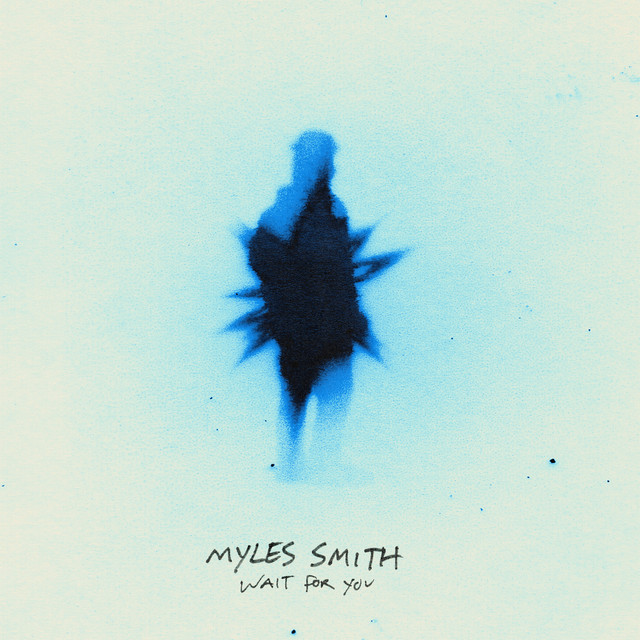
We may receive a portion of sales if you purchase a product through a link in this article.
Wait For You earns RIAA Gold for Myles Smith, recognizing 500,000 units on November 26, 2025.

Wait For You earns RIAA Gold for Myles Smith, recognizing 500,000 units on November 26, 2025.

Myles Smith's single "Wait For You" has officially been certified Gold by the Recording Industry Association of America (RIAA). The certification, awarded on November 26, 2025, recognizes 500,000 units sold and streamed in the United States. The pop track was released by RCA Records Label.
Released on August 23, 2024, "Wait For You" is a soulful song that explores themes of longing and patience in love. Featuring expressive vocals and introspective lyrics, the track blends R&B and pop elements into what has been described as a heartfelt anthem about holding out hope for the right person. The single appears on Smith's album, "A Minute, A Moment...".
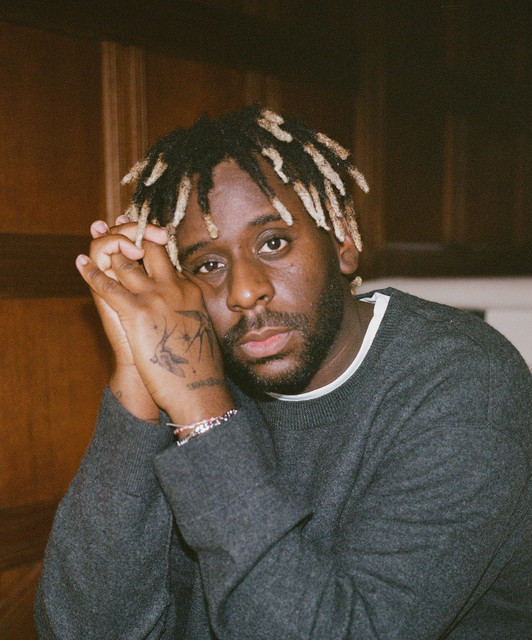
Smith, a singer-songwriter from Luton, United Kingdom, has built a significant global audience with his blend of pop, indie folk, and folk-pop. His digital presence is substantial, with over 1.9 million followers on TikTok and more than 1.3 million followers on Spotify, where he attracts over 19.1 million monthly listeners. His widespread appeal is evident in his listener data, which shows major audiences in cities including London, Sydney, Melbourne, and Amsterdam.
Stargazing earns RIAA 3x Platinum for Myles Smith, recognizing 3,000,000 units on November 26, 2025.

We may receive a portion of sales if you purchase a product through a link in this article.
Stargazing earns RIAA 3x Platinum for Myles Smith, recognizing 3,000,000 units on November 26, 2025.

Stargazing earns RIAA 3x Platinum for Myles Smith, recognizing 3,000,000 units on November 26, 2025.

British singer-songwriter Myles Smith has achieved a significant milestone with his single "Stargazing," which was certified 3x Platinum by the Recording Industry Association of America (RIAA) on November 26, 2025. The certification recognizes 3,000,000 certified units in the United States. Released on May 10, 2024, via RCA Records, the track has become a commercial success for the artist.
"Stargazing" is considered Smith's breakout single, propelling him to wider international recognition. Smith stated he was inspired to write "something really warm, fun and happy" during a visit to Malibu, California. The song's positive reception was reflected in its chart performance, peaking at No. 34 on the Billboard Hot 100 as of October 12, 2024. Its popularity was also evident on social media, where the track was used in over 50,000 videos on TikTok, contributing to its viral spread.

Originally from Luton, England, Myles Smith has cultivated a global fanbase with his blend of pop, indie folk, and singer-songwriter genres. His digital footprint highlights his growing influence, with metrics showing over 19.1 million monthly listeners on Spotify, 1.9 million followers on TikTok, and more than 1.7 million followers on Instagram. The success of "Stargazing" solidifies his status as a prominent emerging artist in contemporary music.
Blick Sum earns RIAA Gold for Latto, recognizing 500,000 units on November 26, 2025.
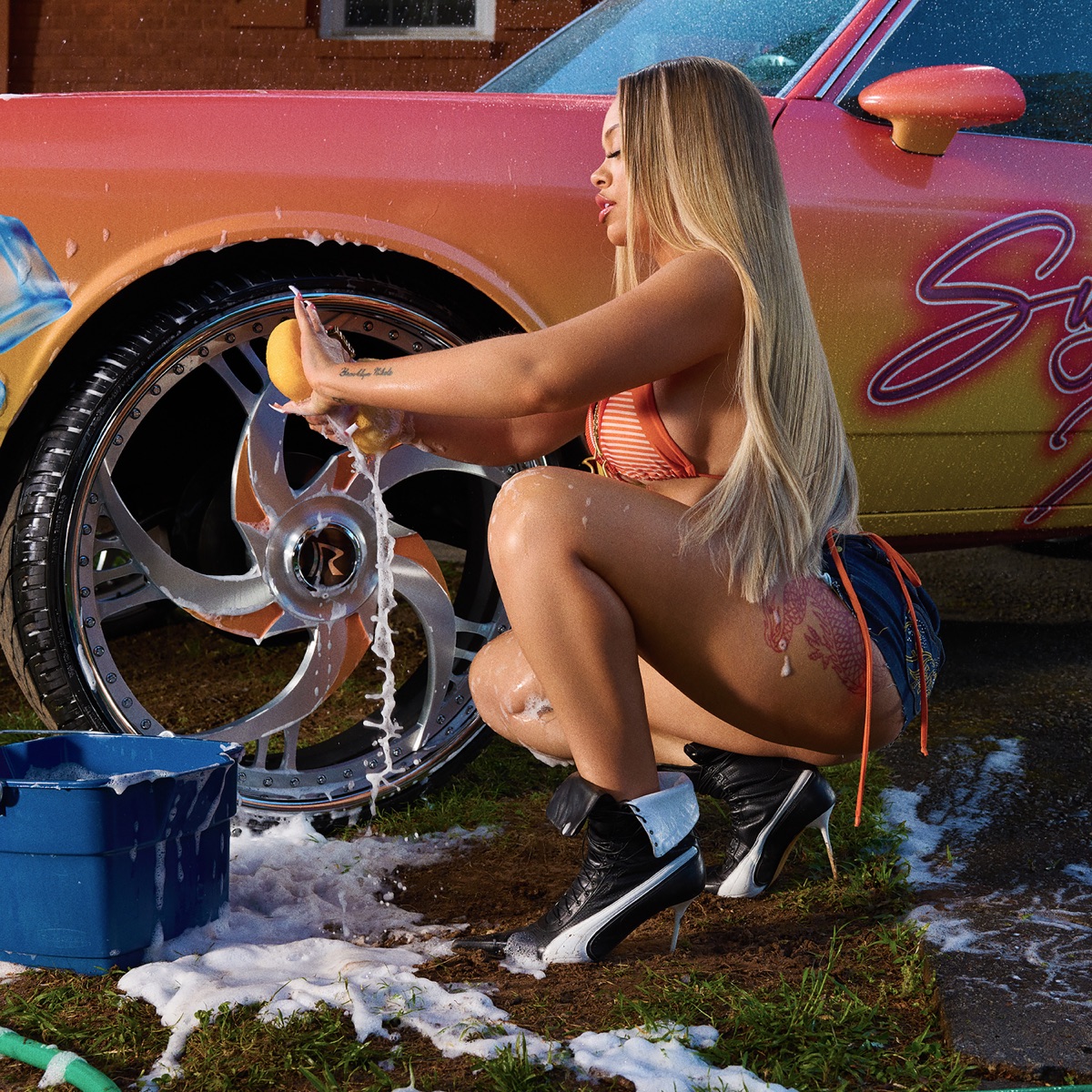
We may receive a portion of sales if you purchase a product through a link in this article.
Blick Sum earns RIAA Gold for Latto, recognizing 500,000 units on November 26, 2025.

Blick Sum earns RIAA Gold for Latto, recognizing 500,000 units on November 26, 2025.

Atlanta-based rapper Latto has added another achievement to her successful career, as her single "Blick Sum" was officially certified Gold by the Recording Industry Association of America (RIAA) on November 26, 2025. The certification recognizes 500,000 certified units in the United States. The track, released on August 9, 2024, is featured on her critically acclaimed third studio album, Sugar Honey Iced Tea, released via RCA Records.
The song's path to Gold status had a unique trajectory. According to Genius, which tracked approximately 116,411 pageviews for the song, an early version was leaked days before the album's release. Latto initially released the track as a solo performance on the album. However, after verses from a version featuring Playboi Carti gained significant popularity on TikTok, an official collaborative version was released. Latto promoted the official release with a sneak peek of its music video on her Instagram account, capitalizing on the viral momentum.

The certification for "Blick Sum" continues a period of high achievement for Latto. Her album Sugar Honey Iced Tea made history by making her the first solo female rapper from Atlanta to have a No. 1 debut on Billboard's Top Rap Albums chart, and it also secured a Top 15 spot on the Billboard 200. A three-time Grammy nominee and the 2023 BET Best Female Hip-Hop Artist winner, Latto has been a prominent figure since signing with RCA in 2020. She was the first solo female rapper from Atlanta to earn any RIAA Gold and Platinum certifications and previously saw her 2022 album, 777, go Gold while her single "Big Energy" became the first by a female rapper to top the Pop, Rhythm, and Urban radio charts.
The lead single from the final Childish Gambino album, "Bando Stone & The New World," was certified by the RIAA for 500,000 units sold.
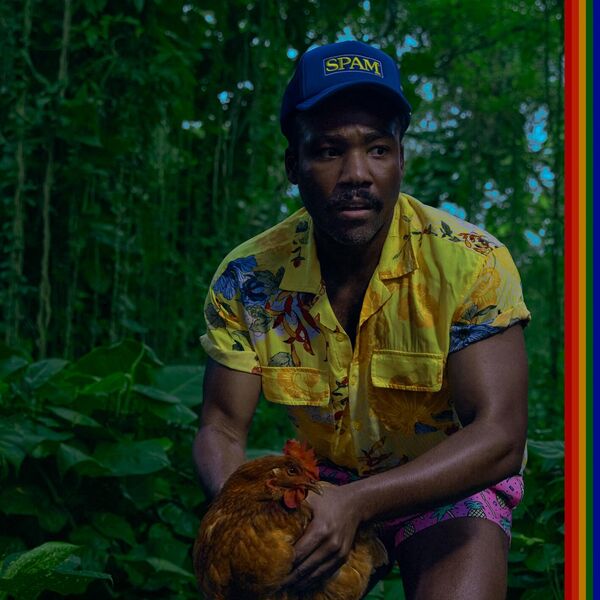
We may receive a portion of sales if you purchase a product through a link in this article.
The lead single from the final Childish Gambino album, "Bando Stone & The New World," was certified by the RIAA for 500,000 units sold.

The lead single from the final Childish Gambino album, "Bando Stone & The New World," was certified by the RIAA for 500,000 units sold.

Childish Gambino's single "Lithonia" has been certified Gold by the Recording Industry Association of America (RIAA), as of November 26, 2025. The certification recognizes 500,000 units in the United States. The track was released by Wolf+Rothstein / RCA Records and is categorized by the RIAA under the pop genre.
Released on July 2, 2024, "Lithonia" serves as the lead single for what has been described as the final Childish Gambino album and soundtrack, Bando Stone & The New World. The song is an emotional pop-rock track that narrates a story from a shifting first- and third-person perspective, reportedly from the viewpoint of a character named Cody LaRae. The title is a reference to the city of Lithonia, Georgia. Upon its release, the song's page on Genius accumulated approximately 327,495 pageviews.

Childish Gambino is the musical moniker of Donald Glover, a multifaceted artist acclaimed for his work in music, acting, and writing. His music often blends genres, including hip-hop/rap, alternative R&B, indie soul, and psychedelic sounds. As a top-tier artist, he maintains a significant digital presence with over 14.6 million Spotify followers and nearly 28 million monthly listeners on the platform. Chartmetric data classifies his career status as a "superstar" with a steady trend.
Extral (Ft. Doechii) earns RIAA Gold for Jennie, recognizing 500,000 units on November 26, 2025.
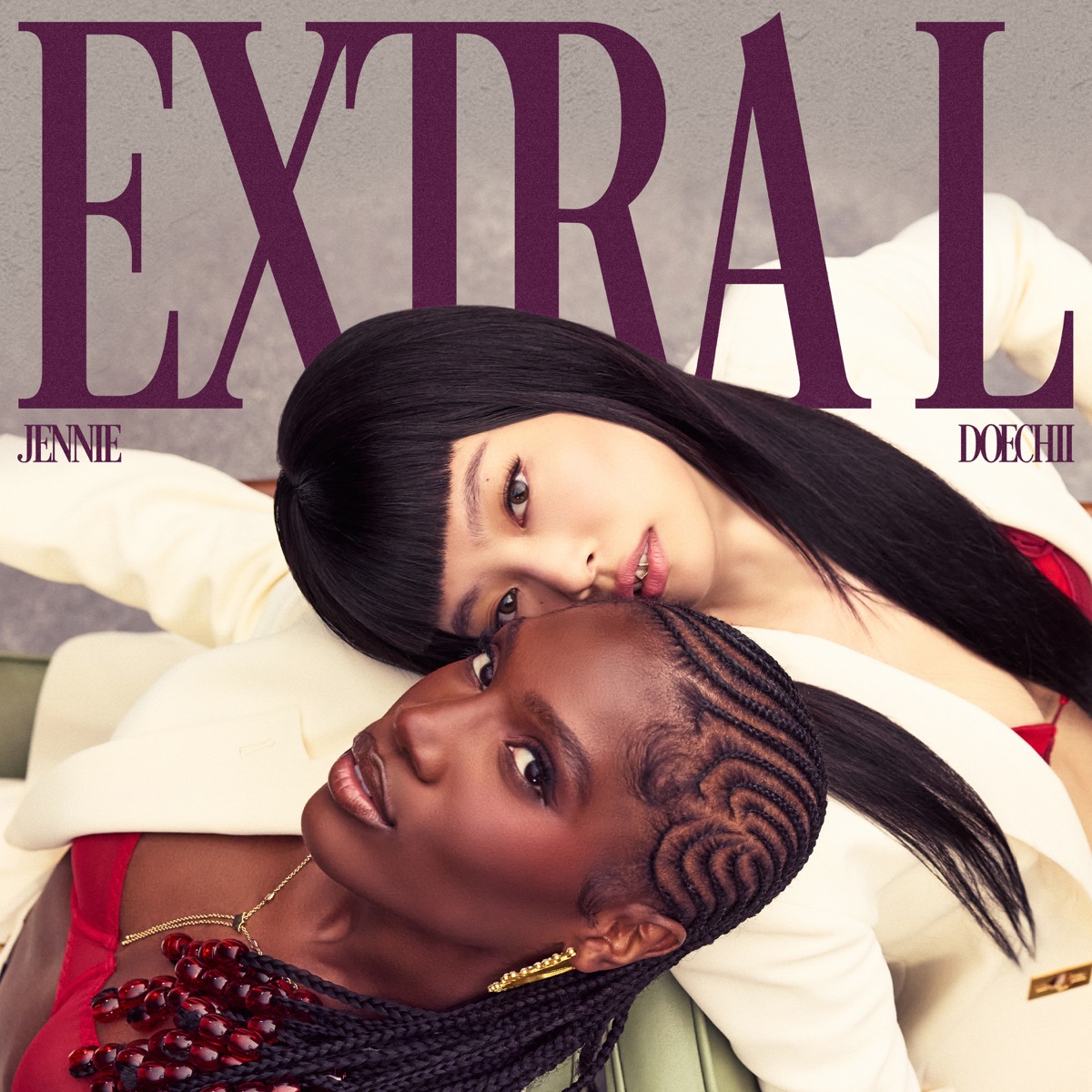
We may receive a portion of sales if you purchase a product through a link in this article.
Extral (Ft. Doechii) earns RIAA Gold for Jennie, recognizing 500,000 units on November 26, 2025.

Extral (Ft. Doechii) earns RIAA Gold for Jennie, recognizing 500,000 units on November 26, 2025.

Jennie's single "Extral (Ft. Doechii)" has received its first certification from the Recording Industry Association of America (RIAA). The track was officially certified Gold on November 26, 2025, recognizing 500,000 certified units in the United States. The pop song, a collaboration with American rapper Doechii, was released on February 21, 2025, through Oa Entertainment and Columbia Records.
Jennie, also known as Jennie Kim, debuted in 2016 as a member of the globally renowned K-pop group BLACKPINK. She has since cultivated a multifaceted solo career as a singer, rapper, actor, and fashion icon. Her debut solo single, "SOLO" (2018), made her the first Korean female solo artist to top the iTunes Worldwide Song Chart. She later made her screen debut in the HBO series "The Idol," co-starring with The Weeknd and Lily-Rose Depp.

The certification for "Extral" highlights Jennie's significant global influence and commercial success. As a solo artist, she maintains a massive digital presence, with over 42.1 million monthly listeners on Spotify, 88.5 million Instagram followers, and 16.3 million YouTube subscribers. Music analytics platform Chartmetric ranks Jennie as a "superstar" artist with a steady career trend, placing her among the top 100 most popular artists worldwide.
Case 143 earns RIAA Gold for Stray Kids, recognizing 500,000 units on November 26, 2025.

We may receive a portion of sales if you purchase a product through a link in this article.
Case 143 earns RIAA Gold for Stray Kids, recognizing 500,000 units on November 26, 2025.

Case 143 earns RIAA Gold for Stray Kids, recognizing 500,000 units on November 26, 2025.

The South Korean group Stray Kids has achieved a new milestone in the United States, with their single "Case 143" earning Gold certification from the Recording Industry Association of America (RIAA). The certification, dated November 26, 2025, recognizes 500,000 certified units. Released on October 7, 2022, under the Jyp Entertainment and Imperial labels, the track is a key single in the group's expanding discography.
"Case 143" served as the lead single for the group's seventh mini-album, MAXIDENT. The song showcases Stray Kids' signature dynamic electronic dance-pop style, with lyrics penned by the group's in-house production team, 3RACHA (composed of members Bang Chan, Changbin, and HAN), expressing the uncontrollable feelings of attraction. The MAXIDENT EP was a significant commercial success for the group, debuting at number one on charts in both South Korea and the United States, a feat they had also achieved earlier in 2022 with their EP Oddinary.
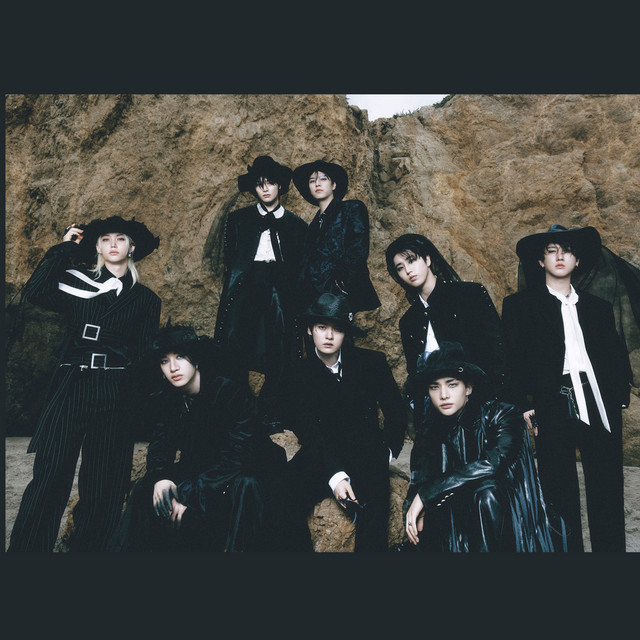
Stray Kids was formed by JYP Entertainment in 2017 through a reality survival show of the same name. The group, consisting of members Bang Chan, Lee Know, Changbin, Hyunjin, HAN, Felix, Seungmin, and I.N, officially debuted in 2018 and has since become a major force in the global music scene, known for a propulsive blend of electronic music and aggressive rap. Their career has been marked by a series of successful releases, including the chart-topping albums GO LIVE (2020), Noeasy (2021), and 5-Star (2023). The group's international growth was further solidified by a U.S. distribution deal with Republic Records in 2022, helping to fuel their worldwide popularity, which is reflected in their substantial online following of over 21 million Spotify followers and 22 million YouTube subscribers.
Tu Tu Tu (Ft. Edgardo Nuñez) earns RIAA 10x Latin Platinum for Clave Especial, recognizing 600,000 units on November 26, 2025.

We may receive a portion of sales if you purchase a product through a link in this article.
Tu Tu Tu (Ft. Edgardo Nuñez) earns RIAA 10x Latin Platinum for Clave Especial, recognizing 600,000 units on November 26, 2025.

Tu Tu Tu (Ft. Edgardo Nuñez) earns RIAA 10x Latin Platinum for Clave Especial, recognizing 600,000 units on November 26, 2025.

The Recording Industry Association of America (RIAA) has awarded Clave Especial a 10x Latin Platinum certification for the single "Tu Tu Tu (Ft. Edgardo Nuñez)." The certification, dated November 26, 2025, recognizes 600,000 equivalent units in the United States. The track achieved this milestone less than a year after its release, underscoring the artist's significant commercial success within the Latin music market.
Previously certified: Diamante (November 26, 2025).
Released on February 20, 2025, via Warner Music Latina, "Tu Tu Tu" is a collaborative track featuring fellow música mexicana artist Edgardo Nuñez. The song appears on Clave Especial's album "Mija No Te Asustes," which was released on the same day. Since its debut, the single has become one of the group's most popular songs, accumulating over 251 million streams on Spotify alone and gaining significant traction across various digital platforms.

Hailing from Salinas, California, Clave Especial has emerged as a prominent force in the corridos and corridos tumbados scenes. The group's widespread appeal is reflected in their digital presence, which includes over 1.25 million Spotify followers and more than 12.7 million monthly listeners on the platform. Their audience is particularly strong in Mexico, with Mexico City, Guadalajara, and Monterrey ranking as top listening cities. Chartmetric data categorizes Clave Especial's career stage as "superstar," supported by metrics such as over 433 million total YouTube views and more than 576,000 followers on TikTok.
Lalalala earns RIAA Gold for Stray Kids, recognizing 500,000 units on November 26, 2025.
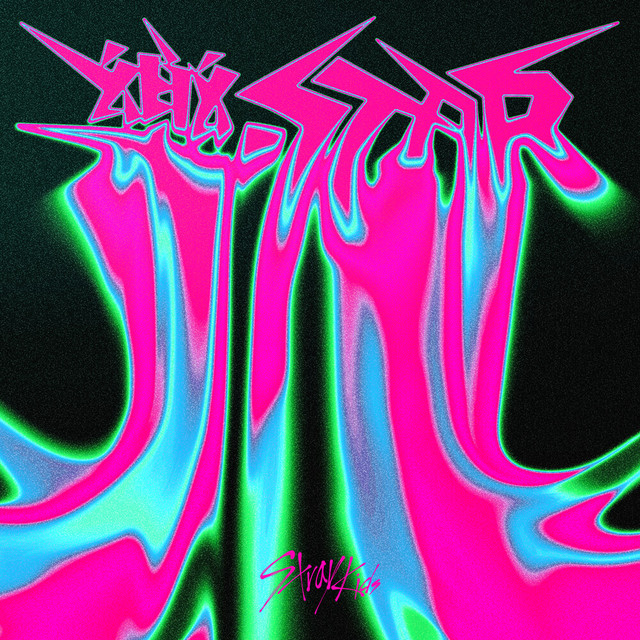
We may receive a portion of sales if you purchase a product through a link in this article.
Lalalala earns RIAA Gold for Stray Kids, recognizing 500,000 units on November 26, 2025.

Lalalala earns RIAA Gold for Stray Kids, recognizing 500,000 units on November 26, 2025.

The South Korean group Stray Kids has achieved a new milestone in the United States, as their single "Lalalala" was certified Gold by the Recording Industry Association of America (RIAA) on November 26, 2025. The certification recognizes 500,000 units sold and streamed in the U.S. The track was released on November 10, 2023, via Jyp Entertainment and Imperial Records.
"Lalalala," also known by its Korean title "락 (樂)," is the lead single from the group's 2023 album, ROCK-STAR (stylized as 樂-STAR ). The track is described as an electric guitar-assisted noise pop song with a message encouraging listeners to overcome adversity through the power of music. The song's accompanying music video depicts the group performing in a chaotic, self-created world, reinforcing the theme of finding joy amidst turmoil.

Formed by JYP Entertainment in 2017 through a reality survival show, Stray Kids consists of members Bang Chan, Lee Know, Changbin, Hyunjin, HAN, Felix, Seungmin, and I.N. The group is known for its distinctive blend of electronic dance music, aggressive rap, and R&B-influenced vocals. They have steadily built a global fanbase, evidenced by their significant digital presence, which includes over 21 million Spotify followers and 22 million YouTube subscribers. Their commercial success has included a series of chart-topping albums, such as Oddinary (2022), Maxident (2022), and 5-Star (2023), which have topped charts in South Korea, the U.S., and Europe. According to Chartmetric, Stray Kids holds a global artist rank of 48 and is categorized as a "superstar" artist with a continued growth trend.
Strategy earns RIAA Platinum for Twice, recognizing 1,000,000 units on November 26, 2025.
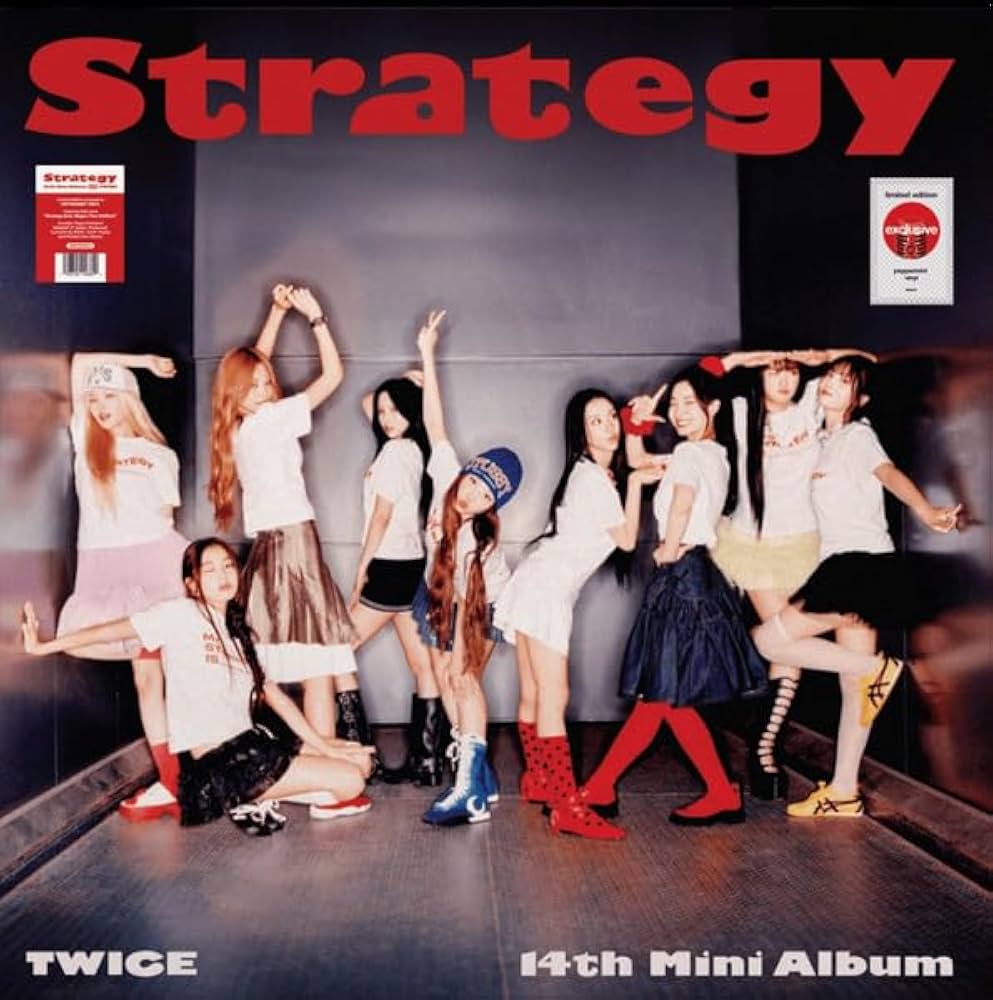
We may receive a portion of sales if you purchase a product through a link in this article.
Strategy earns RIAA Platinum for Twice, recognizing 1,000,000 units on November 26, 2025.

Strategy earns RIAA Platinum for Twice, recognizing 1,000,000 units on November 26, 2025.

The single "Strategy" by South Korean pop group Twice has been certified Platinum by the Recording Industry Association of America (RIAA), the organization announced on November 26, 2025. The certification recognizes 1,000,000 certified units sold in the United States. The digital single was released by Jyp Entertainment and Imperial.
Released on December 6, 2024, "Strategy" is a collaboration with American rapper Megan Thee Stallion. The track was featured on the album for the Netflix film, KPop Demon Hunters (Soundtrack from the Netflix Film). According to Genius, which has tracked approximately 277,709 pageviews for the song, the lyrics describe a playful and confident approach to love, using charm and beauty as a tactic to captivate a crush. The song frames romance as a fun game where the singer's deliberate actions win the devotion of a love interest.
Twice was formed in 2015 by JYP Entertainment through the reality competition show Sixteen. The nine-member group consists of Nayeon, Jeongyeon, Momo, Sana, Jihyo, Mina, Dahyun, Chaeyoung, and Tzuyu. Since their debut, Twice has become one of the most successful K-pop groups globally, known for their consistently catchy discography, vibrant music videos, and intricate choreography. They have released numerous chart-topping albums and singles in both Korean and Japanese, cultivating a large and dedicated international fanbase.
Karma earns RIAA Gold for Stray Kids, recognizing 500,000 units on November 26, 2025.

We may receive a portion of sales if you purchase a product through a link in this article.
Karma earns RIAA Gold for Stray Kids, recognizing 500,000 units on November 26, 2025.

Karma earns RIAA Gold for Stray Kids, recognizing 500,000 units on November 26, 2025.

South Korean group Stray Kids have achieved a new milestone in the United States, as their album Karma was officially certified Gold by the Recording Industry Association of America (RIAA) on November 26, 2025. The certification recognizes 500,000 units sold and streamed. Released on August 22, 2025, via Jyp Entertainment and Imperial, the album reached this benchmark approximately three months after its debut.
Stray Kids was formed by JYP Entertainment in 2017 through a reality survival show of the same name. The group consists of eight members: Bang Chan, Lee Know, Changbin, Hyunjin, HAN, Felix, Seungmin, and I.N. Known for their self-produced music and a distinctive sound described as a "propulsive blend of big bass electronic dance music, aggressive rapping, and R&B-inspired vocals," the group has steadily grown an international following since their 2018 pre-debut EP, Mixtape. Their commercial success has accelerated in recent years, with EPs like Oddinary (2022) and Maxident (2022), as well as their 2023 album 5-Star, topping charts in both South Korea and the U.S.

The Gold certification for Karma underscores the group's sustained momentum and significant presence in the global music market. Their status as international superstars is supported by impressive digital metrics, including over 21 million followers on Spotify, more than 13 million monthly listeners, and a Chartmetric artist rank of 48. The group also commands a massive social media audience with over 33 million followers on TikTok and 32 million on Instagram. This achievement follows a consistent pattern of growth for the act, which signed a U.S. distribution deal with Republic Records in 2022, further solidifying their global reach.
S-Class earns RIAA Gold for Stray Kids, recognizing 500,000 units on November 26, 2025.

We may receive a portion of sales if you purchase a product through a link in this article.
S-Class earns RIAA Gold for Stray Kids, recognizing 500,000 units on November 26, 2025.

S-Class earns RIAA Gold for Stray Kids, recognizing 500,000 units on November 26, 2025.

The single "S-Class" by South Korean group Stray Kids was certified Gold by the Recording Industry Association of America (RIAA) on November 26, 2025. The certification recognizes 500,000 certified units in the United States. Released on June 2, 2023, under the Jyp Entertainment / Imperial label, the track is the lead single from the group's third Korean-language studio album, ★★★★★ (5-STAR).
"S-Class" serves as a declaration of the group's unique identity and elite status in the music industry. The song features a dynamic sound that blends energetic electronic-pop with a retro hip-hop break for the rap verses by members Changbin and HAN, a departure from some of the group's other signature styles. The parent album, ★★★★★ (5-STAR), became the group's highest-selling release to date upon its release and topped charts in South Korea, the U.S., and across Europe, propelled by the success of "S-Class."

Stray Kids was formed by JYP Entertainment in 2017 through a reality survival show of the same name. The group consists of eight members: Bang Chan, Lee Know, Changbin, Hyunjin, HAN, Felix, Seungmin, and I.N. They officially debuted in 2018 with the EP Mixtape and have since achieved significant global success with albums like GO LIVE (2020), Noeasy (2021), and the chart-topping EPs Oddinary and Maxident (2022). With a global fanbase that includes over 21.2 million Spotify followers and 33.6 million TikTok followers, the group is recognized by industry metrics platform Chartmetric as being in a "superstar" career stage with a continued "growth" trend.
Chk Chk Boom earns RIAA Gold for Stray Kids, recognizing 500,000 units on November 26, 2025.
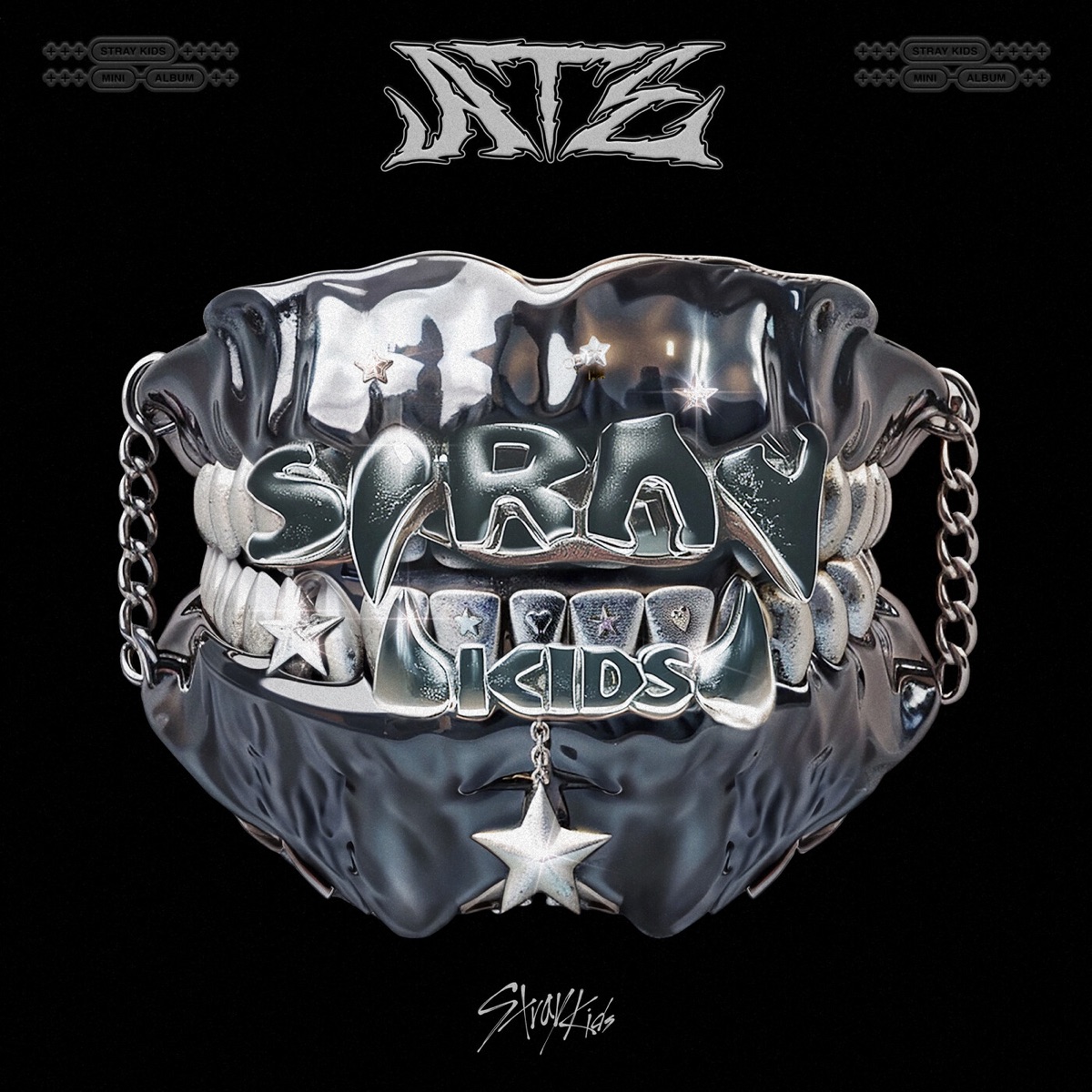
We may receive a portion of sales if you purchase a product through a link in this article.
Chk Chk Boom earns RIAA Gold for Stray Kids, recognizing 500,000 units on November 26, 2025.

Chk Chk Boom earns RIAA Gold for Stray Kids, recognizing 500,000 units on November 26, 2025.

South Korean group Stray Kids has achieved a significant milestone in the United States, as their single "Chk Chk Boom" was certified Gold by the Recording Industry Association of America (RIAA) on November 26, 2025. The certification recognizes 500,000 certified units in the U.S. The single was released on July 19, 2024, via Jyp Entertainment and Imperial.
"Chk Chk Boom" is the title track from the group's album ATE, which was also released in July 2024. The song is described as an energizing electronic dance-pop track, consistent with the group's signature musical style. Its lyrics convey themes of confidence and ambition, with the group challenging their adversaries and aiming to surpass their goals. The song's reach was further expanded by its inclusion on the official soundtrack for the film Deadpool & Wolverine.

Formed by JYP Entertainment in 2017 through a reality survival show, Stray Kids consists of eight members: Bang Chan, Lee Know, Changbin, Hyunjin, HAN, Felix, Seungmin, and I.N. The group is known for a propulsive sound that blends big bass electronic dance music with aggressive rapping and R&B-influenced vocals. Since their 2018 debut, they have achieved escalating global success, with multiple releases topping charts in South Korea and the U.S., including the EPs Oddinary (2022) and Maxident (2022), and the full-length album 5-Star (2023). Their global popularity is reflected in their substantial online following, which includes over 21.2 million Spotify followers and 22.2 million YouTube subscribers.
God's Menu earns RIAA Platinum for Stray Kids, recognizing 1,000,000 units on November 26, 2025.
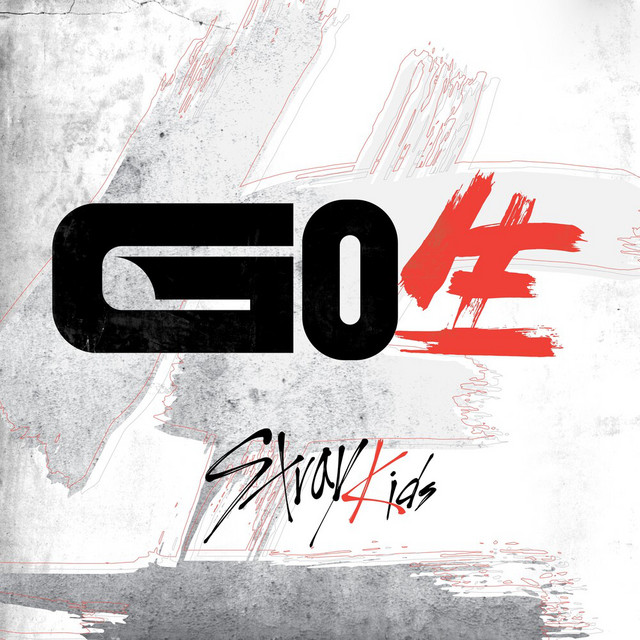
We may receive a portion of sales if you purchase a product through a link in this article.
God's Menu earns RIAA Platinum for Stray Kids, recognizing 1,000,000 units on November 26, 2025.

God's Menu earns RIAA Platinum for Stray Kids, recognizing 1,000,000 units on November 26, 2025.

South Korean group Stray Kids has earned a major U.S. certification for their 2020 single, "God's Menu." The Recording Industry Association of America (RIAA) certified the track Platinum on November 26, 2025, recognizing 1,000,000 certified units sold. The single was released on June 17, 2020, by Jyp Entertainment and Imperial Records.
"God's Menu" served as the lead single for the group's first full-length studio album, GO LIVE. With its unique kitchen-themed lyrics and energetic production, the song was conceived as an invitation for listeners to experience the group's distinct musical identity. It represents Stray Kids' ambition to create a unique space for themselves within the K-pop landscape. The album GO LIVE was a commercial success, topping the charts in South Korea. It was later re-released as IN LIFE, which outsold its predecessor and further solidified the group's growing international presence.

Formed by JYP Entertainment in 2017 through a reality survival show of the same name, Stray Kids consists of members Bang Chan, Lee Know, Changbin, Hyunjin, HAN, Felix, Seungmin, and I.N. The group is known for a propulsive sound that blends electronic dance music, aggressive rap verses, and R&B-influenced vocals. Since their pre-debut EP Mixtape in 2018, Stray Kids has achieved consistent global growth, landing multiple albums at the top of the charts, including 2022's Oddinary and Maxident, and 2023's 5-Star. The group maintains a significant global fanbase, with over 21 million followers on Spotify and a Chartmetric artist rank of 48, placing them among the top acts worldwide.
Heading 2

Heading 3
Heading 4
Heading 5
Heading 6
Loremorem ipsum dolor sit amet, consectetur adipiscing elit, sed do eiusmod tempor incididunt ut labore et dolore magna aliqua. Ut enim ad minim veniam, quis nostrud exercitation ullamco laboris nisi ut aliquip ex ea commodo consequat. Duis aute irure dolor in reprehenderit in voluptate velit esse cillum dolore eu fugiat nulla pariatur.
Block quote
Ordered list
- Item 1
- Item 2
- Item 3
Unordered list
- Item A
- Item B
- Item C
Bold text
Emphasis
Superscript
Subscript